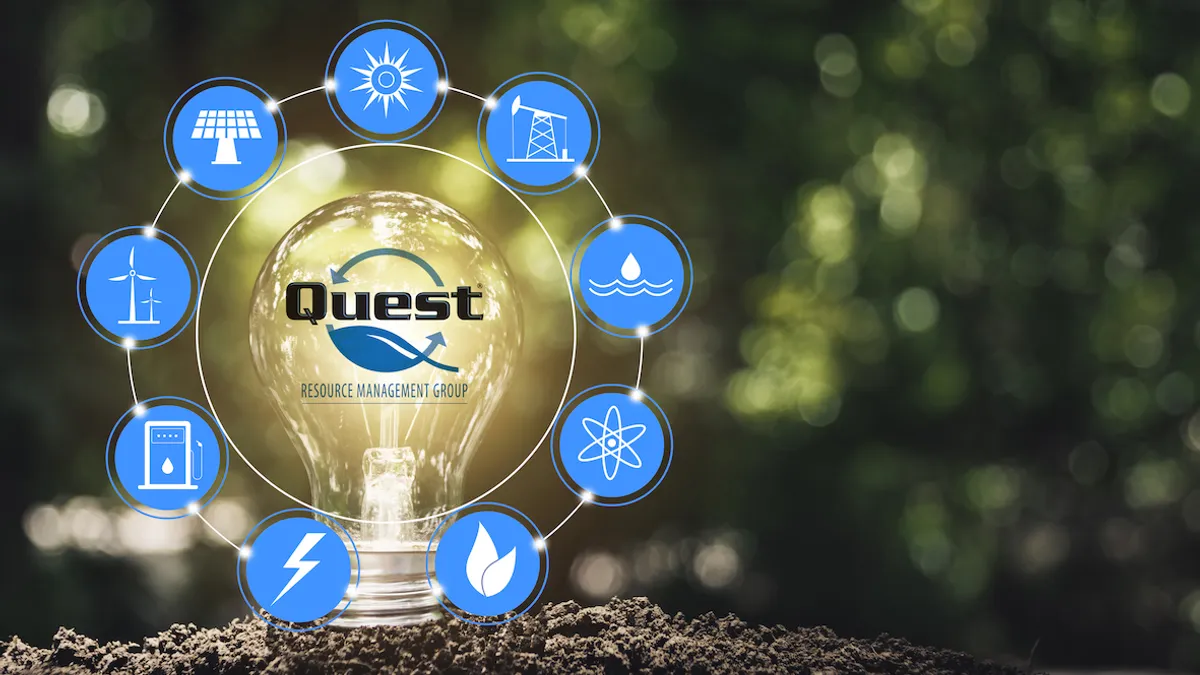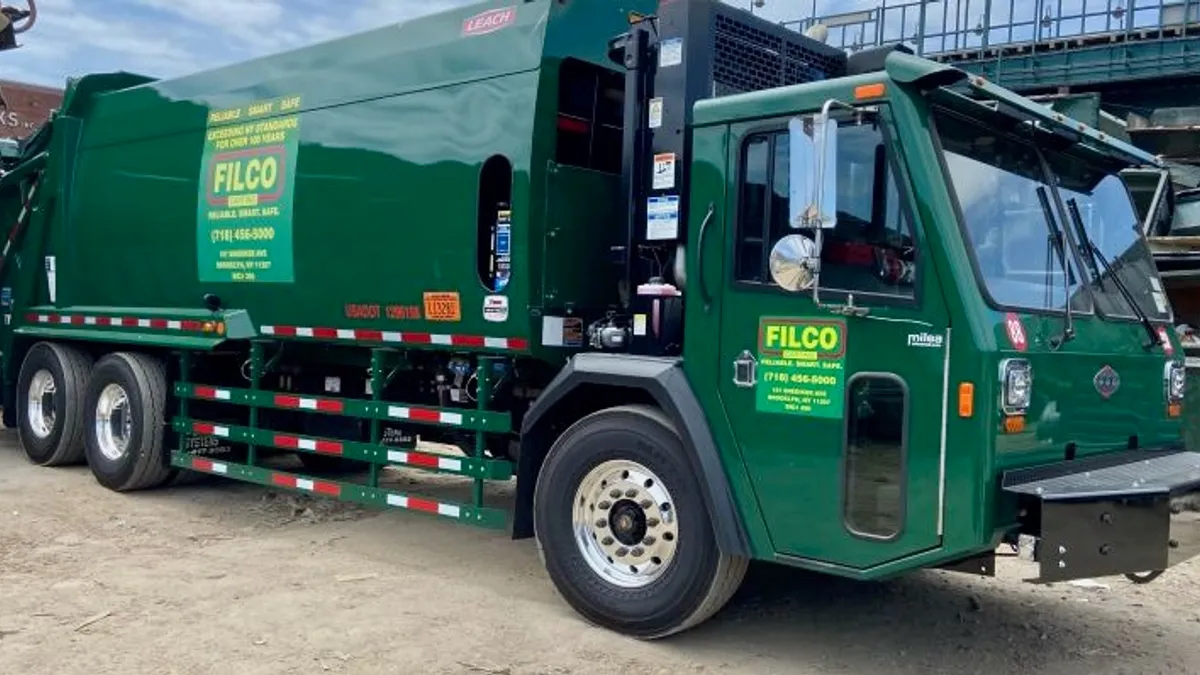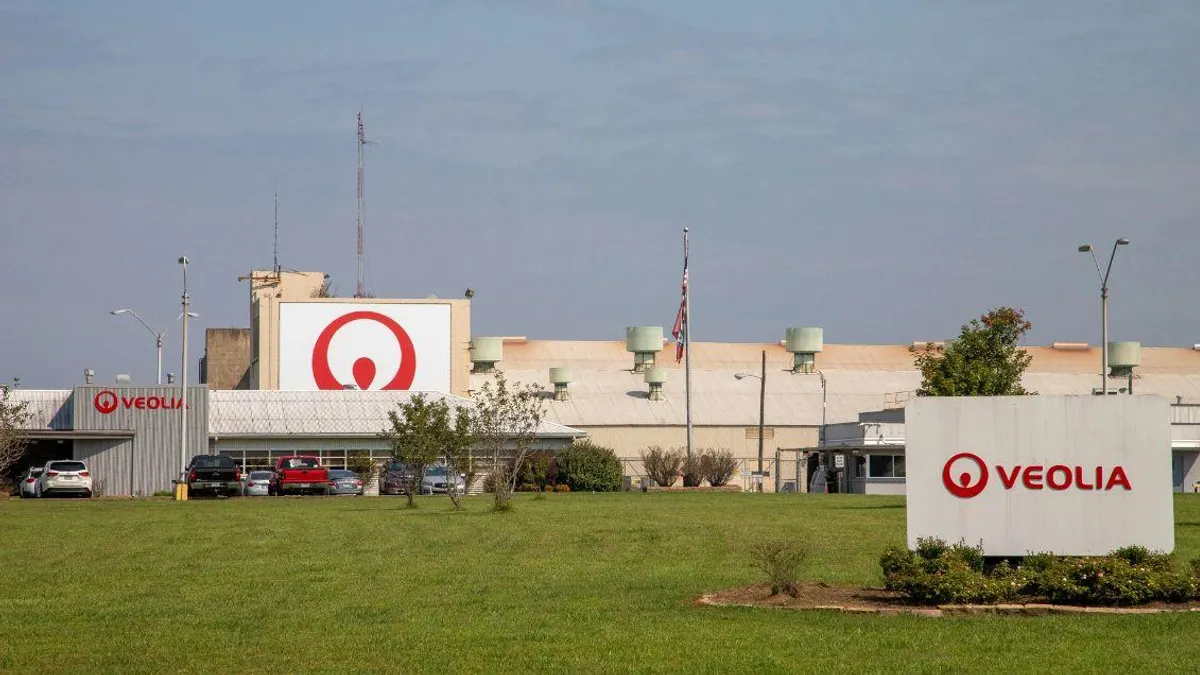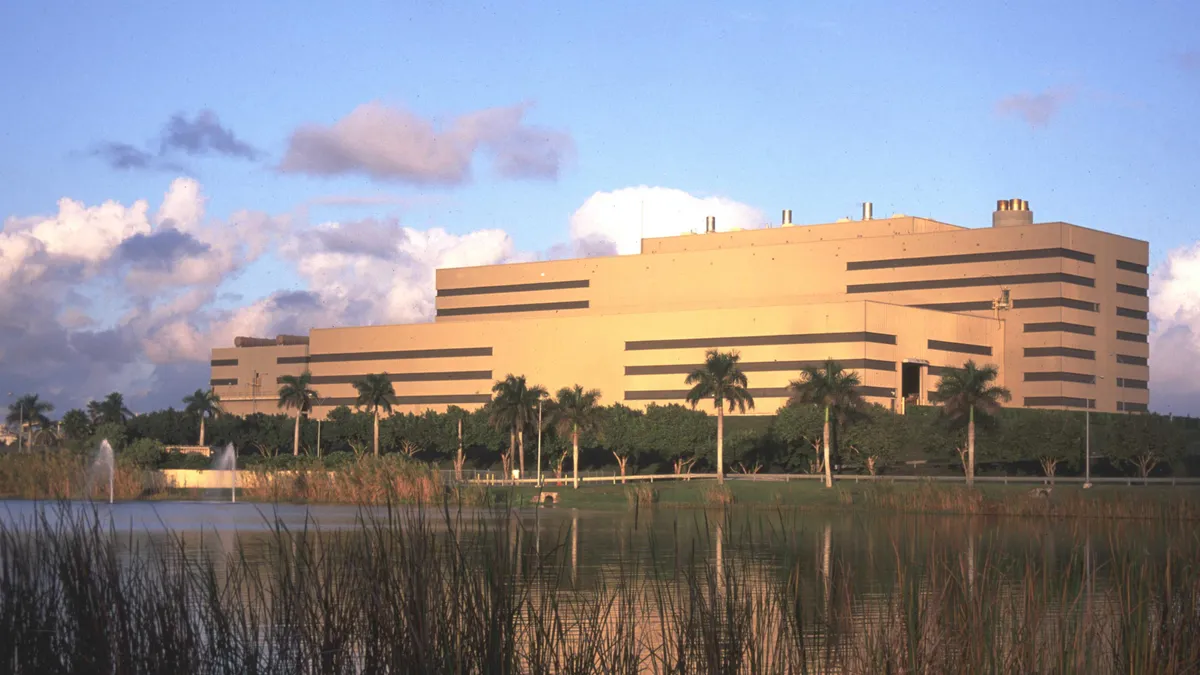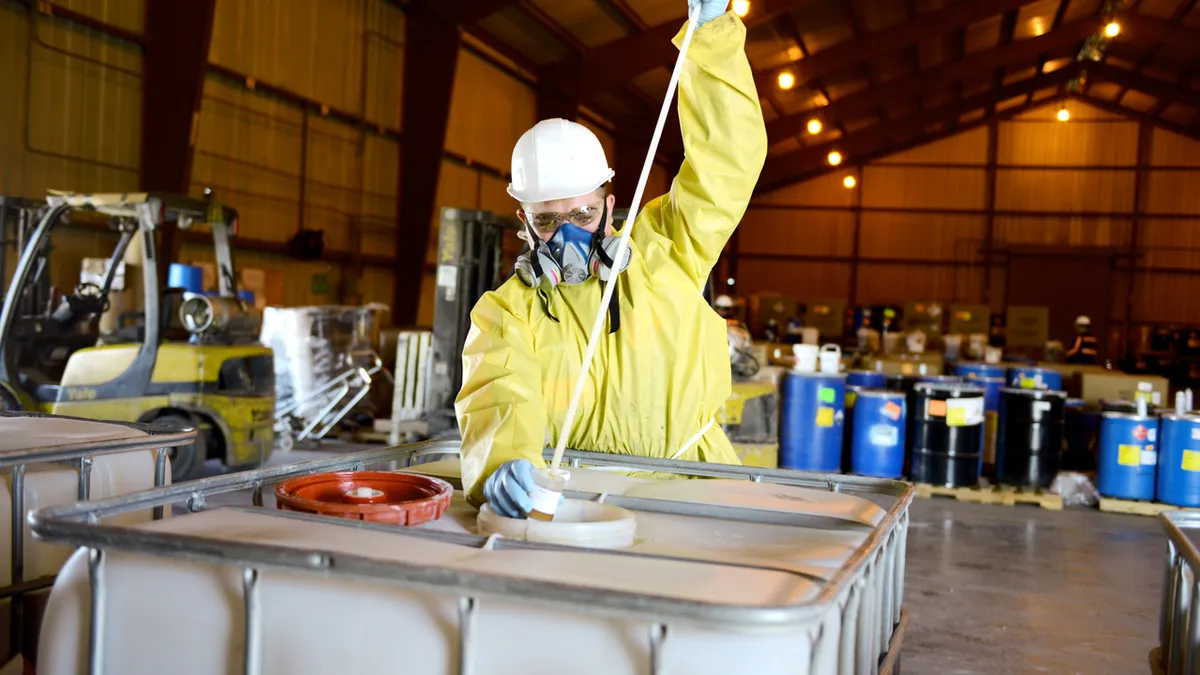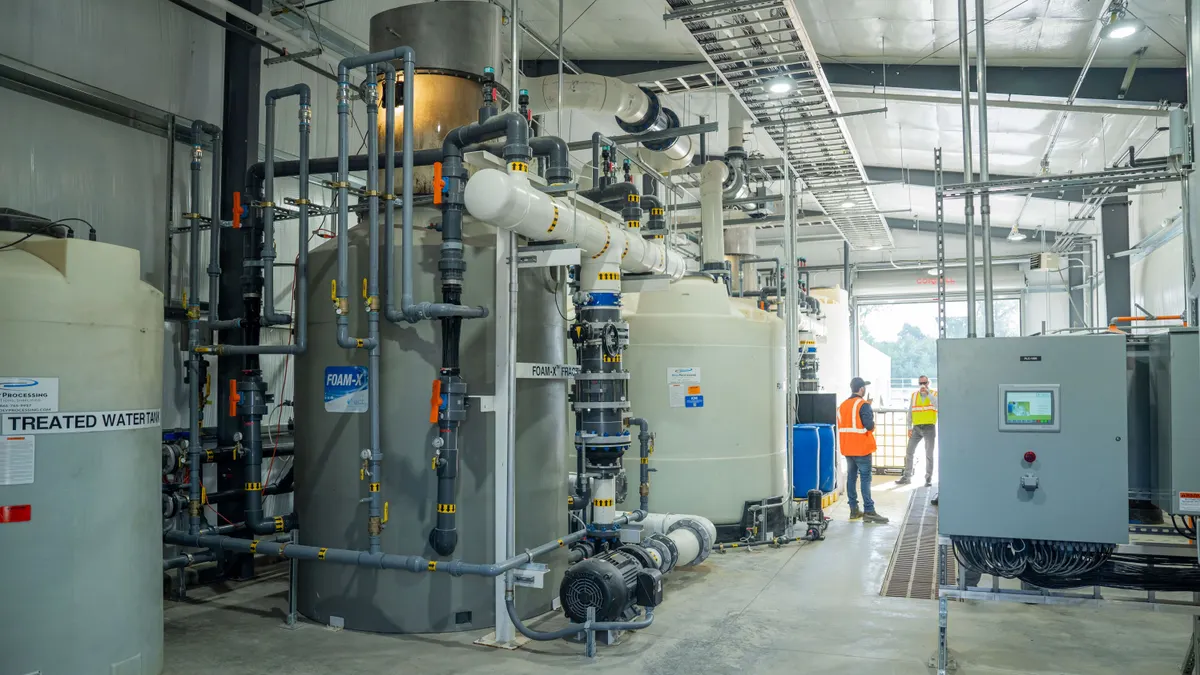As the pandemic continues to disrupt business lines in surprising ways, industry companies that focus on commercial accounts, such as Quest Resource Management Group, have faced headwinds in 2020.
The "asset-light" Texas-based company, founded in 2007, handles accounts throughout the country via more than 3,500 third-party vendors. As volumes of waste, recyclables, organics and used motor oil dipped in the pandemic's early months, Quest received approval for a $1.4 million loan from the Paycheck Protection Program (PPP) to cover expenses. While the company's revenue of $71 million through September was down 6.6% year-over-year, third quarter revenue was only down 0.9% and Quest sees multiple signs of improvement.
Quest recently completed its first acquisition, a $16.2 million deal to buy North Carolina-based Green Remedies Waste & Recycling, marking a greater expansion into multifamily residential waste. Quest President and CEO Ray Hatch sees room to target property management companies in the same way as other business-to-business clients.
Earlier this month, Waste Dive spoke with Hatch, who joined the company in 2016 after stints in the waste and food service industries. This included time at Oakleaf, a sizable player that provided service via third-party haulers before it was acquired by Waste Management in 2011.
The following interview has been edited.
WASTE DIVE: It's obviously been a hard year, and I'm sure that has affected plenty of your customers and subcontractors. How is Quest doing in terms of COVID impacts on the business?
RAY HATCH: We went into Q2 really conservatively by managing expenses and doing everything we could to make sure we could continue to provide good service to the customers... We're really quite diverse. We have everything from specialty retail grocers to large manufacturing, automotive, food service, and then all points in between.
The grocers have done quite well through this segment, which is good. Automotive, basically, is a byproduct of miles driven... and when miles driven slow down so does the frequency of the need. So that's down a little from last year, but it's come back much stronger than we had anticipated. And then you've got manufacturing, which depending on where it is they've had plants shut down for whatever reason.
The diversity of our client base has really helped us weather the storm, and we're really happy with the way we've come out of it so far.
As for Quest itself, I know there were furloughs but things have improved with the PPP money. How's the team doing? Are you back to full steam?
HATCH: The PPP helped and then the business coming back stronger than we anticipated was a great thing as well. We're still operating remotely. Luckily, about a year before all this happened we had completed a migration to the cloud and all those technology investments that we had made really upgraded our system... So we really have functioned without a hitch on the operational aspects. And we've learned a lot about how to be more efficient in this kind of challenged environment we've been operating in.
It seems like momentum has continued as you recently closed the Green Remedies deal. What stands out with that company? What potential do you see in the multifamily space?
HATCH: I've been talking with the owner of Green Remedies for probably over a year-and-a-half. He's got a great business... He's got the same asset-light business like us – he uses subcontractors – but his approach is almost entirely to the multifamily group.
That's a segment that we have a little presence in, but not a whole lot. So it was really appealing to first and foremost add a really quality company with quality people in it to our Quest family. Secondly, it's great to add almost an entirely new segment to our portfolio... We're really excited about taking what they've done so well regionally and hopefully giving it a platform launch throughout the U.S.
So it sounds like plenty of opportunity to get more accounts while also fitting into your sustainability platform? I know from the recycling side, multifamily is viewed as an untapped area in a lot of places.
HATCH: Green Remedies was not really providing that service, meaning separation and recycling. It was pure solid waste. So Quest has numerous offerings relative to waste stream management, and all those offerings are available now to these groups. We want to upsell and offer that... There are a lot of those communities where folks have wanted to be able to do that. So we're going to make that available.
I imagine you've adapted to recycling market challenges for your business over the last couple years, but contamination is known to be a particular factor in multifamily. How do you plan to work around that?
HATCH: Yeah, it's a different sort of challenge... It's always better when your economics align with your goal. So the businesses do quite well. And we're able to keep really clean and contamination is much less of an issue for our typical business clients. This is a little bit different, but we still can manage to do that.
On the M&A side, you've mentioned in recent earnings calls there could be more deals to come. Over the next year or two are you actively looking for more possibilities to acquire?
HATCH: We definitely are. We're working on building our pipeline of really quality companies that are a good strategic fit for us. We've got a lot of headroom on our available credit with Monroe Bank that we utilized for this first acquisition. So we've got a path paved. We definitely have the debt financing and other stuff available to us to be able to make those acquisitions. So right now the challenge is just finding those right ones that make sense.
When we target a company, we really believe that the customers of that company need to be better served on our platform than they would have otherwise. And we feel like that's the key formula for success for us. Meaning not that we're better than the company, but that our platform has got more capability – either from an information or alternate waste stream management [standpoint].
Will you be focusing more on asset-light companies as those future possibilities?
HATCH: I wouldn't exclude anything as we go through this, but by far the most appealing to me at this point is asset-light companies because of the ability to tuck them in and integrate effectively with the least amount of disruption. It just makes total sense for us do that.
How do you make the pitch to potential customers about the ways Quest is different than other asset-light companies, and how do you see yourself growing differently?
HATCH: We do everything, we have such a broad capability on our service profile. We service a lot more than just traditional waste, we do a lot of used motor oil environments and all the stuff associated with that. We've got a lot of food waste. We also have all the traditional recycling. So the network we have and the service we provide I would match up against anybody, and I think we can offer additional ones.
In addition to that, I think a really big piece for us that differentiates is our ability to report back to the client. We have a data warehouse where every touch, every transaction, everything associated with the waste stream is put into our data warehouse. We can build a portal for our client to be able to have definitive access to all of that data by location, by region, by material, however, you want to look at it. And we really feel that's a differentiated aspect for us and I think it's becoming more and more important, when clients are more and more focused on understanding the sustainability practices that they have at their locations and the quantities associated with it.
As new state or local regulations kick in that require reporting from waste generators is that a driver as well?
HATCH: It's really helpful on a number of sides. You have [environmental, social and corporate governance (ESG) trends], and the emphasis on ESG is not just from customers wanting companies to be more sustainable. Now investors are looking for that type of performance as well.
There's upward pressure on the desire to understand the way their streams are being managed. I think that's very vital... We also advise on different regulatory changes that may impact our clients, our customers, all these businesses. It's a treacherous or a challenging world to work within all of these different demands around the waste stream.
I can't imagine that regulation is going to really retract a lot. Ultimately, it's going to continue to be more restrictive on what you do with your waste stream, whatever that form takes. By being on top of that, I just think it's going to continue to have value on a go forward basis.
You have a background at Oakleaf, which got bought out like many others have over the years. As the industry continues to consolidate what does that mean for your business?
HATCH: There's a lot of consolidation, but you know, it's still pretty fractionalized. There are many, many, many good local and regional operators out there. There's still numerous choices. We represent a platform for those subcontractors to be able to participate on a national level through our national account. We feel like this consolidation actually gives us even more opportunity as kind of a contra to the traditional waste [companies].
It's not just differentiation with the other asset-light companies. The breadth of services that we provide is a definite differentiation to the vertically integrated companies. We are agnostic as to the means of disposal. We don't make any more money, we have no economic incentive to drive materials to the landfill or any other specific place. So we're highly customer-aligned based on our business model and I think that's going to continue to be important, if not more important, as the industry consolidates.
Some of the largest vertically-integrated companies would say the traditional model is becoming less of a focus, and they can offer a wide range of services. Are you feeling more pressure from them offering those services in a way that perhaps they weren't before, as they have their own ESG goals like everyone else?
HATCH: We haven't run into that... We don't have to worry about moving toward offering differentiated services. That's who we are at our core.
They're great companies, but at the end of the day they've got capital investments that they have to service. That's not how we operate. We have a whole different business model.
What's next for Quest as you work through a possible economic recovery from the pandemic and trying to grow at the same time?
HATCH: You get a chance to really flex your muscles, even if you didn't know you had them, from a management perspective... We're all facing challenges that we haven't faced before. The ability to forecast was always challenging for any company, but it's even more hindered by the uncertainty that we're looking at out there. So first and foremost we've learned that operating as efficiently and lean as we can, while maintaining all of our service levels for our customers, is something we've been able to do, and we'll continue to do.
By and large, I think the growth trends and our customers are going to continue to come back. I'm thankful that the customers we have are all blue-chip, high-quality customers that are going to survive whatever tsunami comes from this thing. We're really thankful to have those folks as business partners.
So for us, we just continue to enhance our ability to differentiate... Food waste is a huge opportunity and a tremendous possibility. Continuing to expand our end markets like we're doing with multifamily and Green Remedies, finding the right acquisitions. [We're also] continuing to try to innovate relative to ways of disposing of other material that meet everybody's goals both economically and sustainably.
The economic piece is a big aspect for us us that we've really been focused on the last several years, in making sure that folks understand that being greener doesn't necessarily mean you're more expensive... A few years back, if your efforts were being sustainable that meant you were spending more money. And that's just not necessarily the case today.


